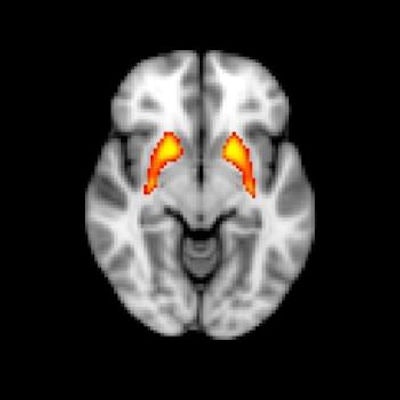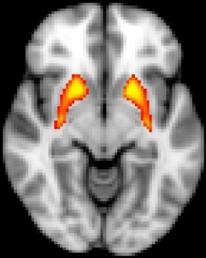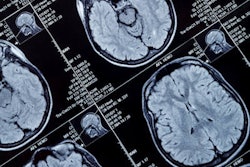
Researchers at the University of Missouri have found evidence in functional MR images (fMRI) that positive and negative feedback could potentially help control psychosis.
 fMRI shows dysfunction in the striatum, which is associated with psychosis risk. Image credit: John Kerns.
fMRI shows dysfunction in the striatum, which is associated with psychosis risk. Image credit: John Kerns.
Using a feedback-based learning task, lead author Nicole Karcher and colleagues found that people at risk for psychosis are impaired when they need to rely on feedback to learn. More specifically, fMRI brain scans revealed that the striatum failed to activate in people at risk for psychosis when they received feedback, according to study results published online March 24 in Schizophrenia Bulletin.
The researchers hope the findings will help mental health professionals better understand how to treat patients with psychoses and prevent the onset of psychosis.



















